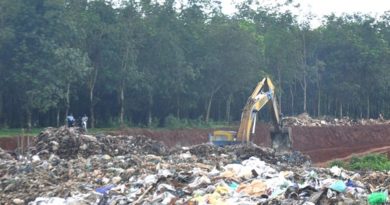EDITORIAL-SG: The Straits Times says Prudent to avoid quick-fix solutions
The Straits Times

Several countries have already eased, or are mulling over the easing of, stringent measures they put in place to contain the coronavirus pandemic as they see a slowdown in the number of infections. Other places such as New Zealand and Hong Kong, which have done well, have decided to extend social distancing and other rules to be sure of reducing the risk of a resurgence. Among the first to ease restrictions was China, which lifted lockdown measures in its epicentre, Wuhan, early this month. Another is South Korea, which this week reopened parks, cafes, malls, golf courses and some restaurants, while some businesses eased work-from-home requirements. In Thailand, the government is planning to lift some restrictions on businesses in 32 provinces that have had no new cases for two weeks as of mid-April, from May 1, and other provinces from mid-May and early June. The pressure to reopen there is strong as Thailand has seen seven million people lose their jobs since the pandemic began and restrictions were imposed.
Indeed, all over the world, lockdowns and other strict measures have cost huge numbers of jobs – more than 26 million in the United States and counting – and taken a heavy toll on people’s well-being. Yet, experts warn that any easing up too soon and without adequate measures in place to prevent or respond to a spike in cases could lead to new waves of infection. The World Health Organisation (WHO) this week urged governments in the region to make decisions guided by public health principles. It said any opening up should be done gradually and warned that if restrictions are relaxed before a strong system is put in place to identify, isolate, care for the sick and trace their contacts, a resurgence is likely.
Apart from having a strong system, experts say the number of cases must drop steadily for at least 14 days before any easing of measures can be considered. Such a trend would mean the virus has been suppressed. Importantly, however, until a vaccine and effective treatment are available, even when restrictions are lifted, life cannot go back to the way it was before. The WHO’s regional director for the Western Pacific Takeshi Kasai said societies must be ready for a new way of living for some time to come. This includes changing individual and societal habits, including for gatherings and at work.
The success of measures in countries may be tempting to others who see themselves on the same trajectory. Governments and societies will have to make hard choices based on their circumstances and the outcome they want: a sustained and clear recovery, or a quick-fix today while hoping for a vaccine to come. Their choices have significant implications. Given today’s interconnected world, local decisions have global consequences. There is no one-size-fits-all template and it will be prudent to exercise caution.
THE EDITOR:













